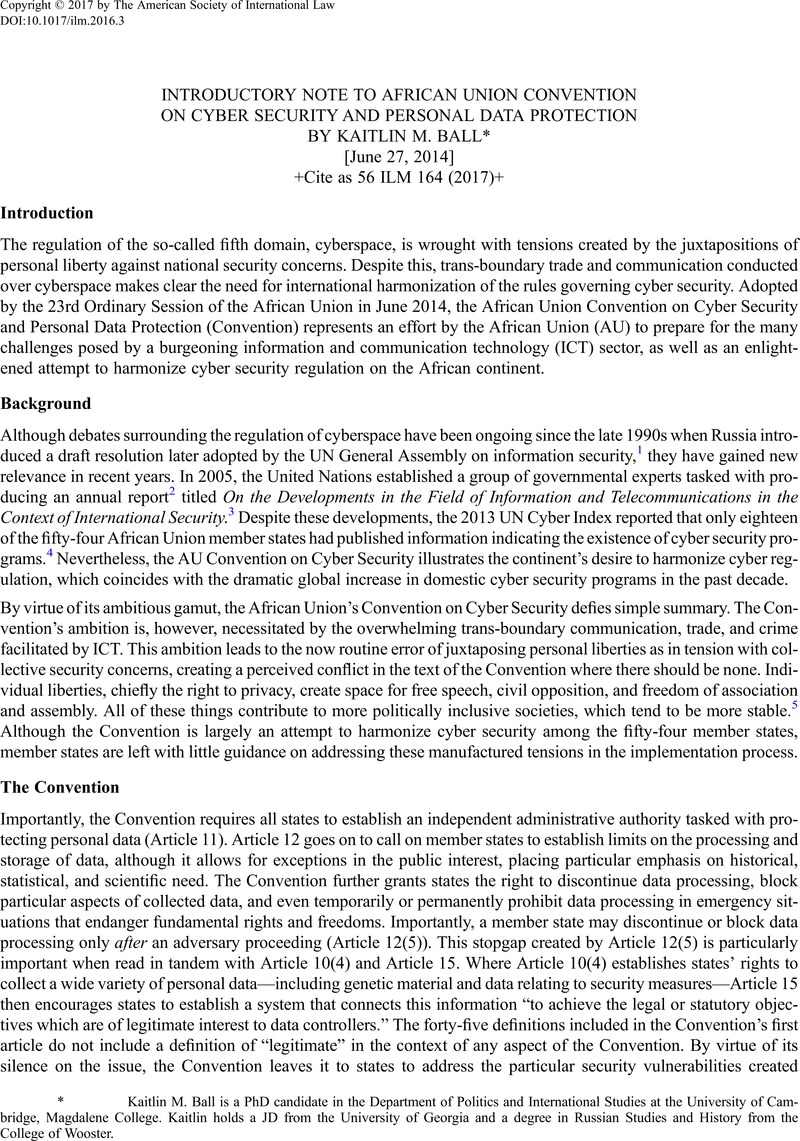Crossref Citations
This article has been cited by the following publications. This list is generated based on data provided by
Crossref.
Sutherland, Ewan
2018.
Cybersecurity: Governance of a New Technology.
SSRN Electronic Journal ,
Hou, Rui
Ren, Guowen
Zhou, Chunlei
Yue, Hongxuan
Liu, Huan
and
Liu, Jiayue
2020.
Analysis and research on network security and privacy security in ubiquitous electricity Internet of Things.
Computer Communications,
Vol. 158,
Issue. ,
p.
64.
Gwagwa, Authur
Kraemer-Mbula, Erika
Rizk, Nagla
Rutenberg, Isaac
and
De Beer, Jeremy
2020.
Artificial Intelligence (AI) Deployments in Africa: Benefits, Challenges and Policy Dimensions.
The African Journal of Information and Communication,
Yu, Zhihui
Liu, Sitong
Wang, Weimin
and
Jain, Deepak Kumar
2022.
Dynamic Threat Weight of Network Security Communication Based on Multisource Data Analysis.
Wireless Communications and Mobile Computing,
Vol. 2022,
Issue. ,
p.
1.
Ifeanyi-Ajufo, Nnenna
2023.
Cyber governance in Africa: at the crossroads of politics, sovereignty and cooperation.
Policy Design and Practice,
Vol. 6,
Issue. 2,
p.
146.
Bouke, Mohamed Aly
Abdullah, Azizol
ALshatebi, Sameer Hamoud
Zaid, Saleh Ali
and
Atigh, Hayate El
2023.
The intersection of targeted advertising and security: Unraveling the mystery of overheard conversations.
Telematics and Informatics Reports,
Vol. 11,
Issue. ,
p.
100092.
Babalola, Olumide
2023.
Data Governance and Policy in Africa.
p.
71.
Djeki, Essohanam
Dégila, Jules
and
Alhassan, Muhtar Hanif
2024.
West African online learning spaces security status and students’ cybersecurity awareness level during COVID-19 lockdown.
Education and Information Technologies,
van Reisen, Mirjam
Amare, Samson Yohannes
Plug, Ruduan
Tadele, Getu
Gebremeskel, Tesfit
Kawu, Abdullahi Abubakar
Smits, Kai
Woldu, Liya Mamo
Stocker, Joëlle
Heddema, Femke
Folorunso, Sakinat Oluwabukonla
Kievit, Rens
and
Medhanyie, Araya Abrha
2024.
Federated Learning for Digital Healthcare Systems.
p.
59.





